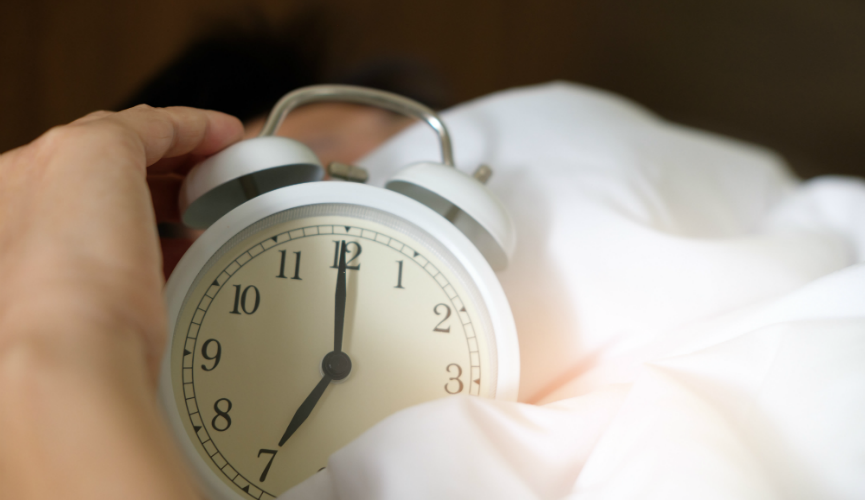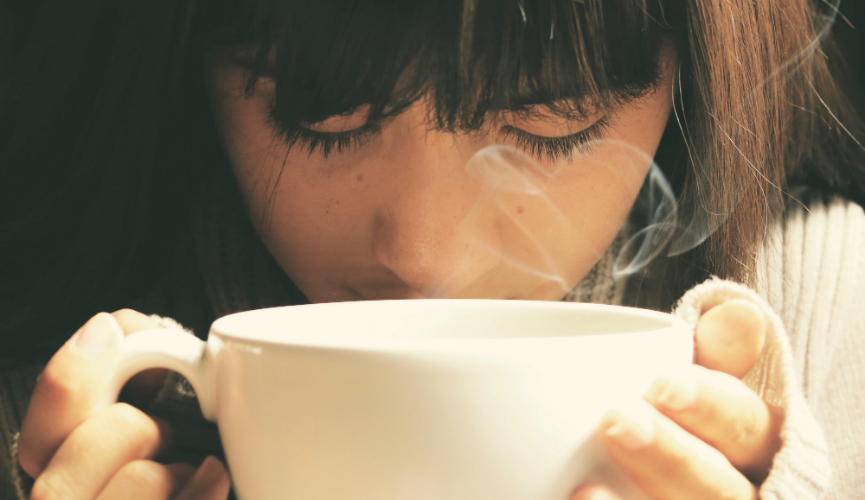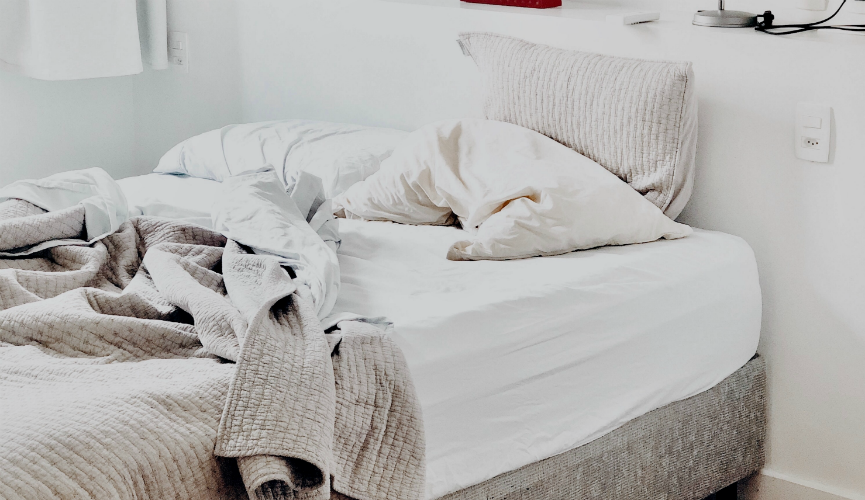It is often underrated how important it is to get the full recommended 8 hours (minimum) of sleep. Getting your eight hours a night has been medically proven and really is important for your physical health and mental wellbeing.
A lack of sleep can make us feel slow and lethargic and also has immediate negative effects on our hormones, exercise performance and brain function. On a more positive note, investing in a healthy bedtime routine can make you happier, healthier and even lose weight!
With the help of our Co-op Pharmacy Superintendent Pharmacist, Sara, we’ve been looking at the top sleep tips to ensure your slumber isn’t cumbersome.
-
Make sure that you get out and about during the day
How many of us are guilty of being sat in our offices in front of artificial lights from screens throughout the day? Probably quite a few! Dedicating some time to heading outdoors and getting a dose of natural vitamin D and fresh air can vastly improve sleep quality and duration. It also helps improve energy and brain function throughout the day and combat sleep issues and insomnia at night.

-
Keep it regular
Your body has a natural time-keeping rhythm. It’s how your body regulates your sleep-wake cycle and you naturally know when to stay awake and when to go to sleep. Like any other clock, when our body clock gets out of rhythm almost everything else can feel pretty out of sync too. This is why sleep experts recommend getting up and going to sleep at similar times, even at the weekend. Your body will thank you for it.

-
Sleep Well Milk
Introducing a cup of milk drink into your bedtime routine is a great habit to get in to. The tryptophan in milk produces the happy chemical serotonin in your brain which boosts health and wellbeing and helps regulate your body’s sleep-wake cycle. Why not try Sleep Well milk? Made from famously creamy whole Jersey milk, honey and valerian (the herb that’s been helping people relax and sleep for 2000 years), Sleep Well is a natural milk drink that the whole family can enjoy. Jersey Milk has 20% more calcium, more protein and a higher concentration of vitamins and minerals so it’s really good for you too. The added valerian is the magic ingredient in Sleep Well that can help you relax and get a better night’s sleep. It tastes delicious too and is available in Jersey from your Co-operative Grand Marchés, selected Locales and online.

-
Decaf, please
Who doesn’t love a cup of java? Coffee has reputedly been known to help some long-term conditions.[i] However, coffee and caffeine aren’t great when it comes to getting some rest. Being a stimulant, coffee and other caffeinated drinks can remain in your system for around 6-8 hours, which for some people can still be enough to affect your ability to go to sleep.[ii] So, if you love a latté or can’t live without a cuppa, try switching to a decaf version for afternoons and evenings. Your Co-operative has a great range of delicious caffeine-free products to try. We bet you won’t even notice the difference in taste.

-
Care for your environment
Take a few moments to look around your bedroom? Does it appeal as a place of rest and relaxation, or does it reflect clutter, chaos and confusion? Spending a few moments, even just before you go to sleep, ensuring that you’re getting into a nice, clean, comfortable bed and that the area around your bedroom is free of light and sound pollution (as much as possible) and clutter can greatly help your sleep quality. As they say; clean space, clear mind.
Also, think about the temperature of your bedroom. Very few people find it easy to sleep in a hot and stuffy room. The ideal temperature of optimal sleep is thought to be around 16-18°C[iii], so if you can open a window before you sleep or have a fan on during the evening, this should help make getting to sleep easier.

-
Go, Go Gadgets!
Phones and tech have done so much for us in the modern world. Apps on our smartphones help us to be fitter, sharper and healthier – some apps can even help us monitor our heart rates to identify irregularities[iv]. But what technology certainly isn’t good for is sleep. Many devices emit a blue light which delays our brains from releasing melatonin, the signal to our body that we feel tired and need sleep. This tricks our brains and hormone activity into believing it is still daytime.
Many newer smartphones and apps allow you to switch to night-time mode which filters blue light and can reduce its negative effect. Try to start using this filter in the hours before you go to bed, or even better, make a resolution to yourself to turn off your phone at least an hour before you want to turn in for the night.

-
Avoid late night drinks and snacks
Generally speaking, it’s not the best habit to eat late at night (remember the motto: ‘eat breakfast like a king, lunch like a prince, and dinner like a pauper”[v]?). The reasoning behind this is simple: we should eat our largest meal earlier in the day to give our bodies the chance to digest food throughout the day. Food is, of course our fuel, and topping up our fuel levels late at night means that we are not getting the opportunity to burn up or use up our stocks. This can lead to weight gain and increased health risks. Eating late at night also increases the risk of indigestion and acid reflux which can also interrupt a good night’s sleep.
Alcohol can also be detrimental to our sleep pattern with research showing that it can stop restorative REM sleep[vi], makes you more prone to snoring and, no doubt, more night-time trips to the bathroom!

[i] https://www.healthline.com/nutrition/top-13-evidence-based-health-benefits-of-coffee#section6
[ii] https://www.healthline.com/nutrition/17-tips-to-sleep-better#section8
[iii] https://thesleepcharity.org.uk/information-support/adults/sleep-environment/
[iv] https://www.apple.com/newsroom/2018/12/ecg-app-and-irregular-heart-rhythm-notification-available-today-on-apple-watch/
[v] http://theconversation.com/should-we-eat-breakfast-like-a-king-lunch-like-a-prince-and-dinner-like-a-pauper-86840
[vi] https://www.sleepfoundation.org/articles/how-alcohol-affects-quality-and-quantity-sleep



